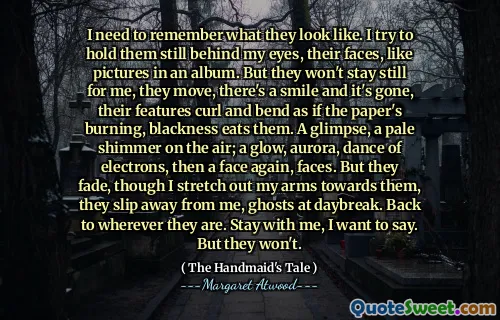What's dangerous in the hands of the multitudes, he said, with what may or may not have been irony, is safe enough for those whose motives are...Beyond reproach, I said.He nodded gravely. Impossible to tell whether or not he meant it.
In Margaret Atwood's "The Handmaid's Tale," a conversation reveals a tension between the power of the masses and the intentions of individuals. One character suggests that what can be hazardous when wielded by many is quite secure in the hands of those seen as morally upright. This highlights a critical perspective on authority and the subjective nature of safety based on one's motives.
The exchange questions the reliability of judgment regarding motives and the implications of power dynamics. The gravitas of the response leaves ambiguity, suggesting skepticism about whether true benevolence can be assumed, illuminating the intricate relationship between trust, power, and morality in societal structures.






